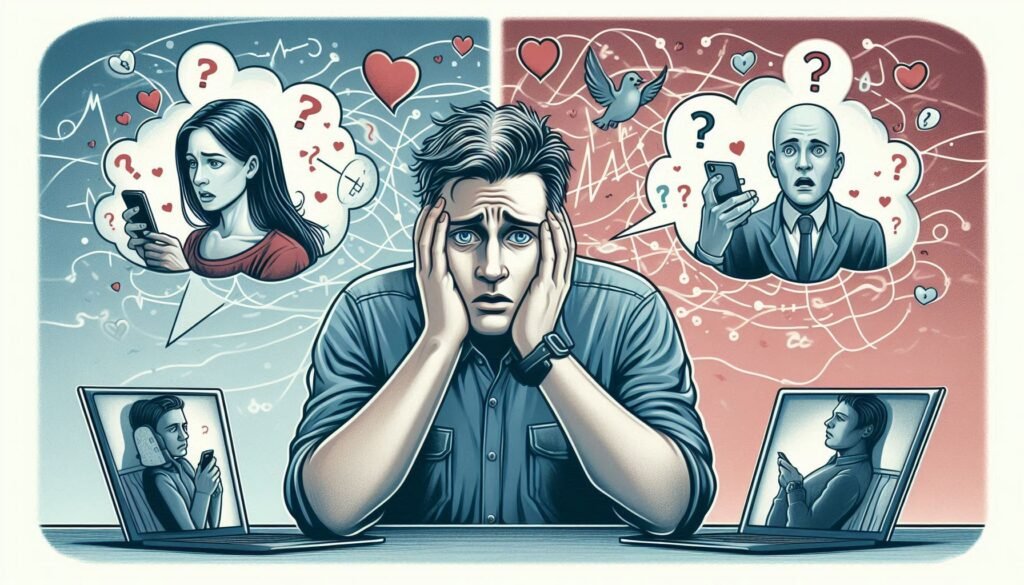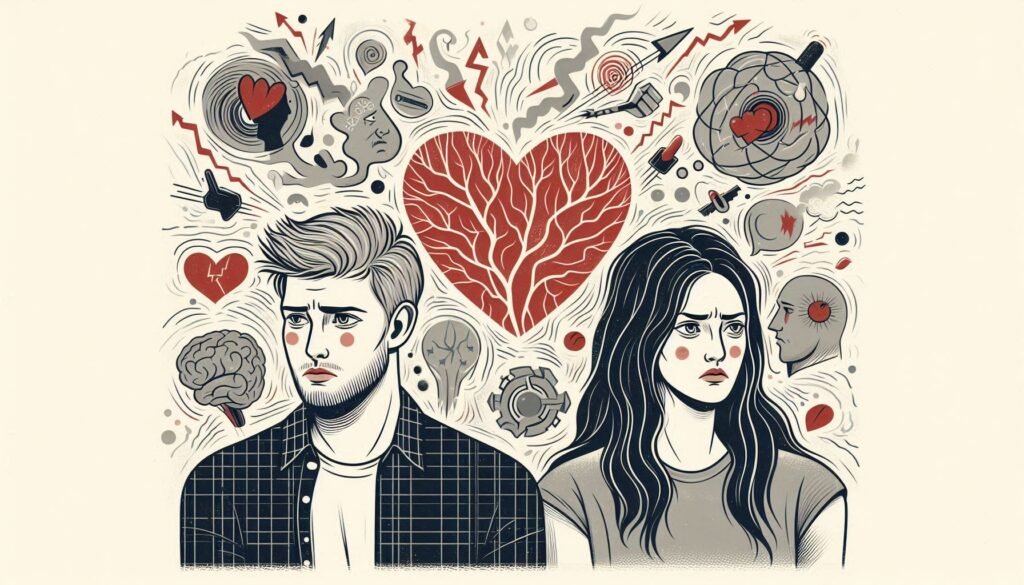Gift-giving is often portrayed as a joyful experience, yet for many, it can evoke feelings of anxiety and stress. This emotional turmoil can be particularly pronounced in individuals high in neuroticism—a personality trait characterized by emotional instability, anxiety, and moodiness. The impact of neuroticism on gift-giving anxiety goes beyond mere worry about selecting the right present; it intertwines with deeper psychological complexities that shape how we interact socially.
Understanding this relationship offers valuable insights into our motivations behind giving gifts and the expectations we hold. As we unravel these layers, we’ll explore how neurotic traits influence everything from decision-making processes to financial considerations during the holiday season or special occasions.
Whether you’re navigating your own anxieties or trying to support someone who struggles with gift-giving pressures, delving into this topic reveals much about human behavior—connecting emotions with social customs in ways you might not have realized before. Join us as we dissect the intricate dance between neuroticism and gift-giving anxiety!

Understanding Neuroticism and Its Relationship to Social Interactions
Neuroticism is a personality trait that reflects an individual’s tendency to experience emotional instability. People high in neuroticism often grapple with negative emotions, such as anxiety, fear, and sadness. This emotional volatility can significantly impact their social interactions.
Individuals with higher levels of neuroticism may perceive social situations as more threatening than they are. They often worry about how others view them or misinterpret social cues. These perceptions can lead to feelings of inadequacy and increased self-consciousness during interactions.
The relationship between neuroticism and social dynamics becomes particularly pronounced during events centered around gift-giving. The pressure to connect deeply through thoughtful presents can amplify their insecurities. As they navigate expectations from peers or family members, the stakes feel even higher.
Moreover, these individuals may struggle with trust issues in relationships due to their anxious nature. Consequently, this dynamic complicates both giving gifts and enjoying the process of connecting emotionally with others through sharing meaningful tokens of appreciation.
The Psychology of Gift-Giving: Motivations, Expectations, and Social Implications
Gift-giving is a deeply ingrained social practice, often driven by various psychological motivations. People give gifts to express love, appreciation, or gratitude. These gestures can strengthen relationships and foster feelings of connection and belonging.
Expectations also play a crucial role in the gift-giving process. Gift recipients may have specific desires or cultural norms that shape their reactions to presents. This can create pressure for givers who strive to meet these expectations while avoiding disappointment.
The implications extend beyond individual interactions; they influence broader social dynamics as well. Gifts often symbolize status or wealth, impacting how individuals perceive one another within their communities. This can lead to competition among friends or family members regarding who gives the most thoughtful or lavish gifts.
Understanding these motivations and implications highlights why gift-giving can be both joyful and anxiety-inducing—especially for those prone to neuroticism who may fear judgment based on their choices.
Neuroticism’s Influence on Gift Selection and Decision-Making Processes
Neuroticism significantly shapes how individuals approach gift selection. People high in neurotic traits often experience heightened emotions and anxiety, making the process of choosing a gift more complex. This emotional turbulence can lead to second-guessing their choices, fearing that they may disappoint the recipient.
When faced with multiple options, someone with high neuroticism might overanalyze every detail. They consider factors such as the recipient’s preferences, past experiences, and even social status implications. This analytical loop can make decision-making cumbersome and time-consuming.
Moreover, these individuals are likely to place excessive importance on perceived expectations from others. The fear of judgment influences their selections and creates additional pressure to choose “the perfect gift.”
As a result, this desire for perfection often overshadows the joy of giving itself. It turns what should be a simple act into a daunting task filled with anxiety about making mistakes or failing to meet social standards.
Perfectionism and Overthinking: The Neurotic Quest for the Ideal Gift
For individuals high in neuroticism, the quest for the perfect gift can become a source of intense anxiety. Perfectionism often drives these individuals to seek gifts that not only please but also impress. This desire can lead to an overwhelming pressure to find something extraordinary.
Overthinking is another common trait among neurotics during the gift-giving process. They may replay scenarios in their minds, imagining every possible reaction from the recipient. This mental loop complicates decision-making and heightens stress levels.
These individuals might spend excessive time researching options, weighing pros and cons endlessly. The fear of making a wrong choice looms large, creating a cycle of doubt that hampers satisfaction with even well-considered selections.
As deadlines approach—like birthdays or holidays—the urgency amplifies this pressure further. Instead of joyfully anticipating giving a thoughtfully selected gift, they succumb to feelings of dread about meeting impossible standards.
Anticipatory Anxiety: How Neuroticism Affects Pre-Giving Stress
Anticipatory anxiety is a common experience for individuals high in neuroticism. As the gift-giving occasion approaches, they may find themselves overwhelmed by worry and self-doubt. Thoughts such as “Will they like it?” or “Did I choose the right one?” can dominate their minds.
This heightened sensitivity to social evaluation transforms what should be a joyful experience into a source of stress. The pressure to meet expectations looms large, creating an internal conflict that makes decision-making difficult. Each choice feels monumental, intensifying feelings of inadequacy.
The fear of negative judgment often fuels this anxiety further. Neurotic individuals may imagine worst-case scenarios where their gifts are poorly received or dismissed altogether. This emotional turmoil can overshadow the intended sentiment behind the gift itself.
As they grapple with these emotions, procrastination becomes commonplace. The longer they delay making a selection, the more pronounced their anxiety grows. This cycle reinforces stress levels and distracts from enjoying meaningful connections during gifting occasions.
Reaction Interpretation: Neuroticism’s Role in Perceiving Gift Reception
Neuroticism greatly impacts how individuals interpret reactions to their gifts. Those high in neurotic traits often experience heightened sensitivity to feedback, both verbal and non-verbal. A simple facial expression or a quiet response can trigger significant anxiety about whether the gift was well-received.
This emotional lens influences perception, leading neurotic individuals to overanalyze every detail. They may ruminate on minor cues that others might overlook, worrying excessively about what these signals mean for their relationship with the recipient. This tendency can create a loop of negative thinking that amplifies feelings of insecurity.
The need for validation becomes paramount as they seek reassurance from friends and family after giving a gift. Their quest for approval fuels stress levels and can dampen the joy typically associated with giving.
Moreover, this hyper-focus on reactions can overshadow the positive aspects of gift-giving itself—connection and thoughtfulness become sidelined by fear and doubt instead of being celebrated.
Cultural and Social Expectations: Navigating Gift-Giving Norms with Neuroticism
Cultural and social expectations play a significant role in the gift-giving process. Different cultures have distinct norms regarding what constitutes an appropriate gift. For someone high in neuroticism, these varying standards can feel overwhelming. They may worry excessively about making the wrong choice or offending someone.
Neurotic individuals often interpret societal cues intensely, leading to anxiety over perceived judgments from others. This hyper-awareness complicates their decision-making, as they fear not meeting expectations. The pressure to conform can create additional stress during special occasions like holidays or birthdays.
Moreover, public displays of gifting can amplify this anxiety further. The idea that one’s gifts will be scrutinized by peers adds another layer of complexity for those who are already prone to second-guessing themselves. Social media only heightens this scrutiny, as comparisons become inevitable.
Navigating these cultural landscapes requires balance and self-awareness for neurotic individuals. Understanding that no one is perfect may help lessen some of this burden when choosing gifts within diverse social contexts.
Financial Aspects: How Neuroticism Influences Gift Budgeting and Spending
Neuroticism profoundly impacts financial decisions, particularly in gift-giving contexts. Individuals high in neuroticism often experience heightened anxiety about how their gifts will be perceived. This concern can lead to overspending as they try to impress or show appreciation.
Budgeting becomes a source of stress for these individuals. They may struggle with setting limits, fearing that a less expensive gift might reflect poorly on their relationship with the recipient. As a result, they might allocate more funds than necessary, leading to financial strain.
This tendency is also linked to impulsivity. In an attempt to alleviate anxiety during the shopping process, neurotic individuals may make hasty purchases without considering long-term implications. The initial joy can quickly turn into regret when bills arrive.
Furthermore, feelings of guilt and obligation often drive spending choices. Neurotics may feel pressured to give extravagant gifts based on societal expectations or personal standards, complicating their relationship with money even further.
Strategies for Managing Gift-Giving Anxiety in Neurotic Individuals
Managing gift-giving anxiety in neurotic individuals requires practical strategies and a mindful approach. First, setting realistic expectations is crucial. Instead of aiming for the perfect gift, focus on thoughtful gestures that reflect genuine care.
Creating a checklist can also alleviate stress. Outline potential gifts based on the recipient’s interests and preferences. This structured approach helps streamline decision-making and reduces feelings of overwhelm.
Practicing mindfulness techniques may further ease anxiety. Deep breathing exercises or short meditation sessions before shopping can help ground emotions, allowing for clearer thinking during the selection process.
Seeking support from friends or family can provide reassurance and enhance confidence when choosing gifts. Discussing ideas with loved ones often leads to valuable insights while reinforcing positive social connections during what might otherwise be a stressful experience.
Therapeutic Approaches: Addressing Gift-Giving Stress in Clinical Settings
Addressing gift-giving anxiety rooted in neuroticism requires a multifaceted approach. Therapy can play a significant role in helping individuals manage their emotional responses surrounding gift-giving. Cognitive Behavioral Therapy (CBT) is particularly useful, as it aids clients in recognizing and reframing negative thought patterns related to perfectionism and social expectations.
Mindfulness techniques are also beneficial. They encourage individuals to stay present and reduce anticipatory anxiety by focusing on the act of giving rather than worrying about how gifts will be received. Engaging in exercises that promote self-compassion can help mitigate feelings of inadequacy or fear of judgment when selecting gifts.
Support groups may provide additional relief, allowing neurotic individuals to share experiences and tips with others facing similar challenges. Therapeutic settings create safe spaces for exploring underlying issues linked to social interactions and self-esteem, fostering healthier relationships with both gifting practices and oneself.
Understanding the impact of neuroticism on gift-giving anxiety opens doors for effective interventions that promote emotional well-being during these often stressful situations. By utilizing therapeutic strategies tailored to individual needs, people can find joy in giving without succumbing to overwhelming pressure or anxiety.


